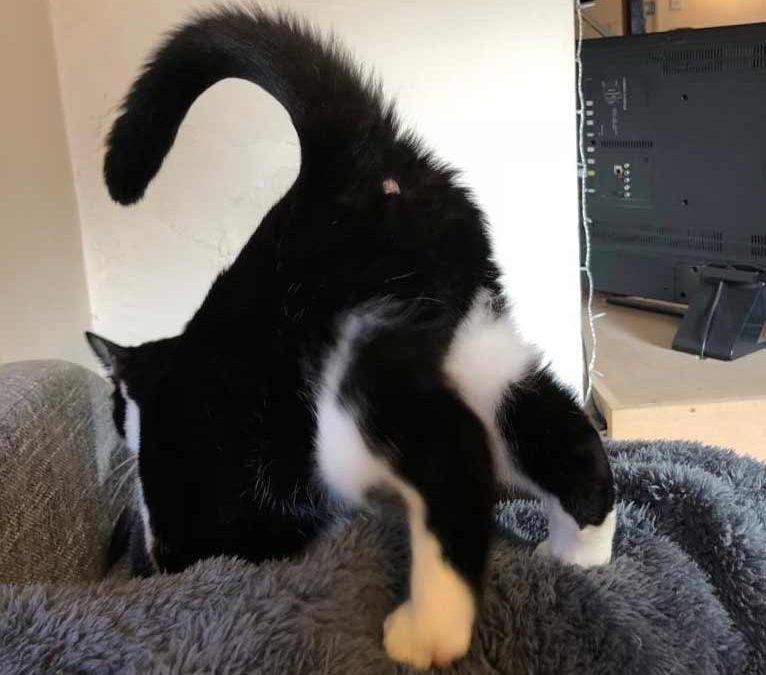Well I’m willing to bet that’s an original blog title and boy did I struggle to find some complementary images! I’ve been wanting to write about this for some time because it’s an area of some concern for many clients who walk through my clinic door.
Let’s face it, everyone has a hole in their arse and it performs a very important function in our lives, yet because of its bizarre purpose and private location, it doesn’t get any good press.
I’ve seen a lot of bum holes due to the nature of my work… literally thousands. You might be under the illusion that everyone’s anus looks the same but you would be severely mistaken. They are as different in colour, structure and overall appearance as noses on faces. Sometimes, they are not in as specified a location as you might think either.
The bum hole is nobody’s favourite body part but, trust me, when it doesn’t work properly you’ll wish you’d given yours greater respect!
Your anus is actually a very clever piece of anatomy. It can tell the difference between gas, solid and liquid and will alter its behaviour to preserve your dignity at all times. Having the confidence to squeak out a silent fart is under the jurisdiction of a well behaved anus. And when this powerful ability to discern is lost, the owner faces the uncomfortable and humiliating experience of “the shart” – I’m sure you can work out the origin of this word without too much help.
No-one wants that in their life.
There are a few reasons that a person’s anus becomes distorted and unable to manage things adequately down there.
The most common cause, and this affects more women than men (🤣), is pregnancy and child birth. Constipation is quite common during pregnancy and then there is the delivery to contend with. There is a tremendous pressure on the back passage when a baby is delivered. As the baby travels down the birth canal, the mother often defecates despite her best efforts not to.. but there simply is no choice. It’s not personal – it’s geography.
Sometimes, the pressure is so great that the internal area around the anus gets pushed out too. Usually, after a few days, as the physical trauma around the mother’s undercarriage calms down and things begin to settle, anything protruding from the back passage will make its way home again, but sometimes it’s not in the same address as it was before the baby was born. The mother finds small bulges and sometimes protruding skin tags, usually not painful, around where her perfect anus had previously resided. These are rarely problematic and it’s something we often just learn to live with.
Sometimes during the birthing experience some ladies naturally tear and this too can present problems for the anus if the tearing is severe and stitches are required. An episiotomy (a surgical cut made to widen the vaginal opening to avoid tearing) can be performed, though it is observed that healing from this wound often takes longer than from a natural tear. Poor stitching and poor wound healing can be a factor to a poorly functioning anus after childbirth. It’s worth getting this checked out even if it is months or years since you gave birth. It can often be remedied easily.
Constipation is another massive contributory factor to anal distortions. Again, the pressure of bearing down, trying to push out a poo has a detrimental affect on your poor bottom. Whilst initially you may only experience the inconvenience of small piles (haemorrhoids), if you don’t get some stool softeners and get to the bottom of what is causing your constipation, your persistent pushing could be setting you up for something more serious in later life, like a rectal prolapse. This may require surgical intervention.

Did you know you actually have two anal sphincters?
These two very clever rings of muscle have a relationship that you don’t really know about, but you can encourage them to be better friends through good bowel habits.
When you wipe your bum after a poo, you’re cleaning up your external sphincter. This one you know all about and you can activate your conscious control of it by clenching and puckering it up (like when you need to fart but the time is just not appropriate!).
But a little further inside your back passage is your internal sphincter and this one is not under your conscious control. You have no influence over it at all, as it is governed by a different nervous system.
However, you can upset this one inadvertently by persistently avoiding the need to poo when the train comes into the station. So let’s say you’re at work and you need a poo but you’re too embarrassed to go because the toilets aren’t nice or you just don’t want to poop at work – what do you? You pucker up that external sphincter and ask your body to hold on just a while.
It will oblige you usually, and your poop will conveniently present itself when you get home and you can relieve yourself in the comfort of your own toilet. This is fine if you do it infrequently, but, if you keep denying the urge to defecate when you get it, eventually that internal sphincter stops presenting the goods.. no-one likes their best work being rejected right?
And so you begin to develop a constipation habit which in turn, becomes a big problem for a host of other reasons.
Why does my anus hurt when I poo?
Everyone experiences some discomfort in this area from time to time… for example, a period of dehydration might cause your poos to be larger in circumference than normal and when you pass them, your anus has to do the stretch of its life to accommodate the broader stool. Consequently, you can have little micro tears in the delicate tissue which can sting or burn a little. These are rarely a reason for concern and can be remedied by using some stool softeners, drinking more water and applying a little soothing cream to the area.
Bleeding or that sense of something splitting when you’re pooing is similar to the aforementioned but more of a problem. This requires a little discernment of your own. Oftentimes, a little bright red blood is nothing to concern yourself with, but if the blood volumes are large and frequent, then you might need to get yourself checked out by your GP, just to make sure you’re not missing something serious.
Talking of serious…
More often than not we have the odd problem with our bum that just disappears after a short time. But if you are experiencing regular issues with your anus you may need to seek further guidance. I do understand that it might feel embarrassing to ask for help with something of such a personal nature, but please, do get yourself seen to – too many people have ignored symptoms and literally died from embarrassment.
Anal cancer is a condition in its own right and it affects more women than men. The symptoms are varied but include:
- itching and pain around the anus
- bleeding
- lumps
- mucous discharge
- urgent need to poo with looser stools
If you’d like to find out more about this condition to safeguard yourself with better knowledge, visit this site:
Written by Katherine Brooke, international speaker and bestselling author on the subject of gut health and poo.
If you are interested in a chat about your anus or how I can help with relief from bowel problems like constipation, IBS, bloating and diarrhoea, please don’t be embarrased and please do get in touch.


